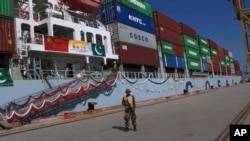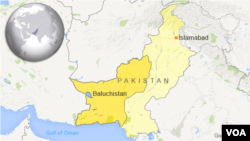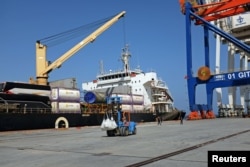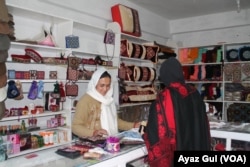Chinese officials have denied reports that they are in contact with separatist militants in Pakistan’s restive Baluchistan province to secure tens of billions of dollars’ worth of infrastructure projects planned for the area.
A report in the Financial Times this week said that quiet talks between the two sides had been ongoing for five years and that Beijing had been in direct contact with the militants.
However, a senior Chinese official dealing with the region said he had “never heard of it.” The official did not want his name mentioned in the media.
Sher Muhammad Bugti, a representative of a separatist group the Baluch Republican Party, also denied having any negotiations with China.
“We do not know of any talks, nor have we been contacted [by China],” he told the VOA Deewa Service from his exile in Switzerland.
However, some other separatist leaders have demurred from issuing a similar denial.
China is planning the largest segment of its One Belt One Road initiative in Pakistan called the China Pakistan Economic Corridor. The primary aim of the network of roads and railway lines is to connect Xinjiang province in Western China through Pakistan to the Indian ocean, reducing its international shipping time by weeks and slashing the cost. The port city Gwadar, the lynchpin of the project, is in Baluchistan province.
CPEC, as the network is commonly known, is also hailed as a regional connectivity framework, with “impact on Iran, Afghanistan, India, Central Asian Republic, and the region,” according to its official website under the Pakistan government.
However, it passes through areas in Pakistan, particularly in Baluchistan, that have long faced an insurgency demanding more autonomy and control over local resources. Baloch separatists view CPEC with suspicion, fearing it is another attempt by the federal government of Pakistan to plunder the assets of their province without giving them a due share in the profit. However, officials say employment and prosperity generated by CPEC projects will benefit the local population.
The $60 billion Chinese investment plans have also materialized at a time when Pakistan is facing increased tensions with the United States, which recently suspended all military aid to the country for failing to act against militants that the U.S. said are operating against neighboring Afghanistan and India from its soil.















